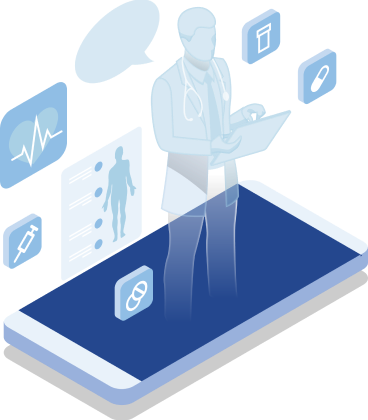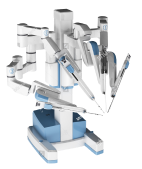To Book an Appointment
Call Us+91 92688 80303Why Choose Max Hospital
Max Hospital, India, is one of the best brugada syndrome hospitals in India. We provide unparalleled patient care and hospital experience in India for brugada syndrome. We have top-notch specialists and cutting- edge technology under one roof, thus ensuring quality treatment to patients.- Experienced team- We have highly skilled Max Hospital, India, specialists with experience of 20+ years.
- Clinical Excellence- We have proven experience in handling even the most complicated cases accurately and precisely.
- State-of-the-art technology- We have the latest technologies for diagnosing and treating cases with unconventional methods.
- Personalised care- At Max Hospital, India, we provide quality treatment to each patient as per the individual requirement to ensure personalised care.
- Stringent infection control- We follow strict protocols for infection control to prevent complications.
People from following locations visit Max Hospital, India: Ethiopia, Myanmar, UAE, Qatar, Kuwait, Bahrain, Nigeria, Bangladesh, Yemen, Uganda, Tanzania, Nepal, Uzbekistan, Oman, Iraq, Kenya

Filters
Doctors Available
Dr. Satbir Singh
Director
Cardiology, Cardiac Sciences, Interventional Cardiology, Cardiac Electrophysiology-Pacemaker
Gender: Male
Dr. Yogendra Singh
Director – Interventional Cardiology
Cardiology, Cardiac Sciences, Cardiac Electrophysiology-Pacemaker, Interventional Cardiology
Experience: 27+ Years
Gender: Male
Dr. Aditya Kumar Singh
Associate Director - Unit Head CTVS
Cardiac Surgery (CTVS), Cardiac Sciences
Experience: 16+ Years
Dr. Gagandip Singh
Associate Director - Cardiac Sciences - Cardiology
Cardiology, Cardiac Sciences, Cardiac Electrophysiology-Pacemaker
Experience: 21+ Years
Gender: Male
Dr. Nishant Tyagi
Associate Director
Cardiac Sciences, Cardiology
Experience: 22+ Years
Gender: Male
Dr. Sunil Kumar Wadhwa
Associate Director – Cardiac Sciences - Cardiology
Cardiology, Cardiac Sciences, Cardiac Electrophysiology-Pacemaker, Interventional Cardiology
Experience: 20+ Years
Gender: Male
Can't find what you are looking for?
Dr. Mitendra Singh Yadav
Associate Director – Interventional Cardiology
Cardiology, Cardiac Sciences, Interventional Cardiology
Experience: 15+ Years
Gender: Male
Dr. Lekha Pathak
Head of the Department
Cardiology, Cardiac Sciences, Interventional Cardiology, Cardiac Electrophysiology-Pacemaker
Gender: Female
Dr. Akhilesh Shrivastava
HOD (PHP & Wellness), Senior Consultant (Non Invasive Cardiology)
Cardiac Sciences, Cardiology
Experience: 45+ Years
Gender: Male
Can't find what you are looking for?
Dr. H K Agarwal
Senior Consultant - Cardiology
Cardiac Sciences, Cardiology, Interventional Cardiology
Experience: 38+ Years
Gender: Male
Dr. Rajendra Kumar Agarwal
Senior Consultant - Cardiology
Interventional Cardiology, Cardiac Electrophysiology-Pacemaker, Cardiology, Cardiac Sciences
Experience: 23+ Years
Gender: Male
Dr. Rajiv G. Bhagwat
Senior consultant
Cardiac Sciences, Cardiac Electrophysiology-Pacemaker, Cardiology, Interventional Cardiology
Dr. Amit Goel
Senior Consultant
Cardiac Sciences, Cardiology, Interventional Cardiology, Cardiac Electrophysiology-Pacemaker
Gender: Male
Languages Spoken: Hindi, English
Can't find what you are looking for?
Dr. Arvind Kumar Goyal
Senior Consultant - CTVS
Cardiac Surgery (CTVS), Cardiac Sciences
Gender: Male
Dr. Sajal Gupta
Senior Consultant - Cardiology
Cardiology, Interventional Cardiology, Cardiac Sciences
Dr. Sushil Kumbhat
Senior consultant
Cardiac Sciences, Cardiology, Interventional Cardiology, Cardiac Electrophysiology-Pacemaker
Gender: Male
Dr. Rajiv Mehrotra
Senior consultant
Cardiology, Cardiac Sciences
Experience: 33+ Years
Gender: Male
Dr. Sushant C Patil
Senior consultant
Cardiology, Interventional Cardiology, Cardiac Sciences, Cardiac Electrophysiology-Pacemaker
Can't find what you are looking for?
Dr. Madhav Rao Shinde
Senior Consultant - CTVS
Cardiac Sciences, Cardiac Surgery (CTVS)
Experience: 24+ Years
Gender: Male
Dr. Salil Shirodkar
Senior consultant
Cardiology, Interventional Cardiology, Cardiac Sciences, Cardiac Electrophysiology-Pacemaker
Gender: Male
Dr. Ankit Singh
Senior Consultant - Cardiac Electrophysiology & Pacing
Cardiac Electrophysiology-Pacemaker, Cardiac Sciences
Gender: Male
Dr. Harnish Singh Bhatia
Consultant - Interventional Cardiology
Interventional Cardiology, Cardiac Sciences, Cardiology
Dr. Waseem Farooqui
Consultant - Cardiac Sciences
Cardiac Sciences, Interventional Cardiology, Cardiology
Gender: Male
Can't find what you are looking for?
Dr. Puneet Jandial
Consultant - Cardio Vascular & Thoracic Surgery
Cardiac Sciences, Cardiac Surgery (CTVS)
Experience: 31+ Years
Gender: Male
Dr. Amrendra Kumar Pandey
Consultant - Cardiology
Cardiology, Interventional Cardiology, Cardiac Sciences
Dr. Ratna Mallik
Consultant ADULT CTVS
Cardiac Sciences, Cardiac Surgery (CTVS)
Experience: 20+ Years
Gender: Female
Dr. Akshay K Mehta
Consultant
Cardiac Sciences, Cardiology, Interventional Cardiology, Cardiac Electrophysiology-Pacemaker
Dr. Neelesh Pandey
Consultant - Interventional Cardiology
Cardiac Sciences, Interventional Cardiology
Experience: 5+ Years
Gender: Male
Can't find what you are looking for?
Dr. Amit K. Soni
Consultant - Interventional Cardiologist
Interventional Cardiology, Cardiac Sciences
Gender: Male
Dr. Sumit Kumar
Associate Consultant – Intervention Cardiology
Interventional Cardiology, Cardiac Sciences, Paediatric (Ped) Cardiology
Experience: 10+ Years
Gender: Male
Can't find what you are looking for?
Dr. Heemanshu Lodhi
Associate Consultant - Interventional Cardiology
Interventional Cardiology, Cardiac Sciences
Gender: Male
Dr. (Col) C.P.Roy
Visiting Consultant – Cardiology
Cardiac Sciences, Cardiology, Interventional Cardiology
Experience: 39+ Years
Gender: Male

Our Technological Advancements

Real Patient Stories
Frequently Asked Questions
What is Brugada syndrome?
Brugada syndrome is a rare genetic disorder that affects the electrical system of the heart, leading to an increased risk of abnormal heart rhythms and sudden cardiac arrest.
What causes Brugada syndrome?
Brugada syndrome is primarily caused by mutations in certain genes that control the flow of sodium ions in the heart's cells. These genetic mutations disrupt the normal electrical signals and increase the risk of arrhythmias.
Is Brugada syndrome inherited?
Yes, Brugada syndrome is usually inherited in an autosomal dominant manner, meaning that a person with the condition has a 50% chance of passing it on to each of their children.
What are the symptoms of Brugada syndrome?
The most common symptom of Brugada syndrome is fainting or sudden loss of consciousness, often during sleep or rest. Other symptoms may include heart palpitations, shortness of breath, and chest pain.
How is Brugada syndrome diagnosed?
Diagnosis of Brugada syndrome involves a combination of clinical evaluation, electrocardiogram (ECG) testing, and genetic testing. The ECG pattern associated with Brugada syndrome is known as a "coved-type" ST-segment elevation.
Can Brugada syndrome be treated?
Yes, treatment for Brugada syndrome aims to prevent life-threatening arrhythmias. This may involve the implantation of an implantable cardioverter-defibrillator (ICD) to deliver a shock to restore normal heart rhythm if a dangerous arrhythmia occurs.
Can medications help manage Brugada syndrome?
In some cases, medications such as anti-arrhythmic drugs may be prescribed to help control abnormal heart rhythms in individuals with Brugada syndrome. However, the effectiveness of medications varies among patients.
Are there any lifestyle modifications recommended for individuals with Brugada syndrome?
Yes, certain lifestyle modifications may be advised, such as avoiding triggers that can worsen arrhythmias, including certain medications, alcohol, and fever-inducing drugs. Regular follow-up with a cardiologist is also important.
Can Brugada syndrome be cured?
Currently, there is no known cure for Brugada syndrome. However, with proper management and adherence to treatment strategies, the risk of life-threatening arrhythmias can be significantly reduced.
Can individuals with Brugada syndrome participate in sports or physical activities?
The participation of individuals with Brugada syndrome in sports and physical activities should be evaluated on an individual basis. Generally, competitive sports with a high intensity or risk of collision are discouraged. Avoid swimming.
Can Brugada syndrome be detected prenatally?
Prenatal diagnosis of Brugada syndrome is possible through genetic testing if a specific mutation is known to be present in the family. However, this is not routinely performed unless there is a strong family history of the condition.
Are there any known complications associated with Brugada syndrome?
The main complication of Brugada syndrome is the risk of sudden cardiac arrest, which can be life-threatening. Prompt medical intervention and the use of an ICD significantly reduce this risk.
Can Brugada syndrome affect children?
Yes, Brugada syndrome can affect individuals of any age, including children. If a child has a family history of the syndrome or experiences unexplained fainting or arrhythmias, they should be evaluated by a pediatric cardiologist.
Is genetic testing necessary for all family members of an individual diagnosed with Brugada syndrome?
It is generally recommended that first-degree relatives (parents, siblings, children) of an individual diagnosed with Brugada syndrome undergo genetic testing to determine if they carry the genetic mutation.
Can alcohol consumption trigger arrhythmias in individuals with Brugada syndrome?
Yes, alcohol consumption has been reported to trigger arrhythmias in some individuals with Brugada syndrome. It is advised to limit or avoid alcohol consumption if diagnosed with the condition.
Can Brugada syndrome be associated with other heart conditions?
Brugada syndrome is primarily a disorder of the heart's electrical system. However, it can coexist with other heart conditions, such as structural abnormalities or certain genetic disorders, which may require additional evaluation and management.
Are there any alternative therapies or complementary approaches for managing Brugada syndrome?
Currently, there are no alternative therapies or complementary approaches that have been proven to effectively manage Brugada syndrome. It is crucial to consult with a qualified cardiologist for evidence-based treatment options.
Review
FAQs reviewed by Dr. Sunil Kumar Wadhwa, Principal Consultant, Cardiology, Cardiac Sciences.





















































